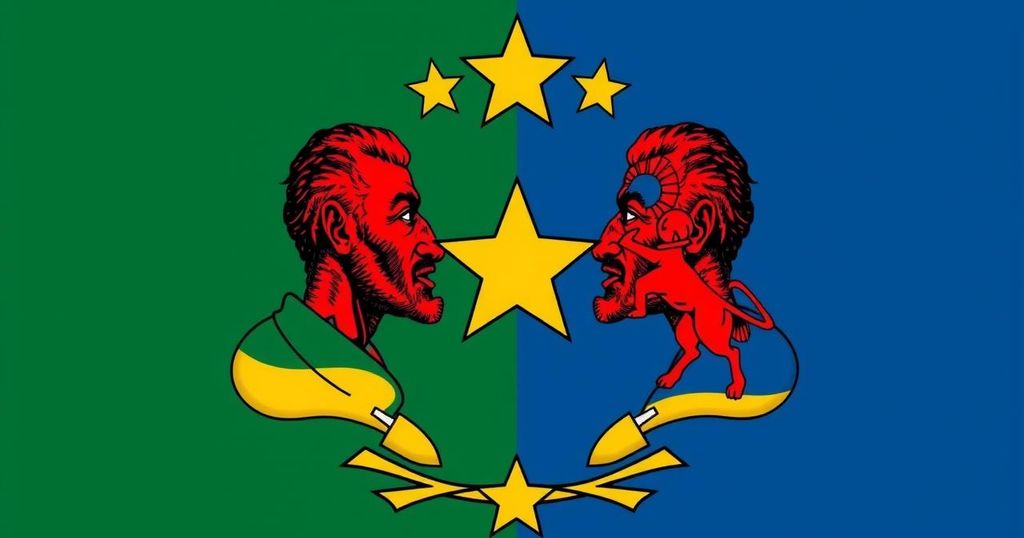The Democratic Republic of the Congo is weighing a constitutional review that may allow President Felix Tshisekedi to extend his tenure. The ruling party argues the need for reform, while the opposition vehemently opposes any changes, citing potential risks to democracy and governance. Tshisekedi plans to establish a commission for drafting a new constitution, asserting the current one does not reflect Congolese realities. Concerns are exacerbated by historical tensions over constitutional revisions and fears of authoritarianism.
The Democratic Republic of the Congo (DRC) is currently contemplating a constitutional review that has raised concerns regarding the potential extension of President Felix Tshisekedi’s administration. Augustin Kabuya, a close aide to Tshisekedi, has articulated that the existing constitution “has demonstrated its limitations in the exercise of public power,” prompting a discussion about the necessity for reform. President Tshisekedi himself has stated that the country requires a constitution reflective of its national identity and has announced plans to form a commission next year to draft a new constitution, asserting that the current laws, crafted by foreign entities, do not align with Congolese realities. The constitution, enacted in 2006 to foster stability post-conflict and promote democracy, was met with significant opposition during its inception. The political landscape has now shifted, with Tshisekedi’s ruling party actively advocating for constitutional amendments. While the laws allow for a maximum of two presidential terms, Tshisekedi claims that his term should be viewed differently given the administrative delays at the beginning of his tenure. Furthermore, he maintains that the processes following an electoral victory hinder effective governance. The opposition, however, remains resolutely against any modifications, fearing that such changes would ultimately allow Tshisekedi to maintain his grip on power indefinitely. Key opposition figures, including Olivier Katumbi and Martin Fayulu, have pledged to resist any attempts to alter the constitution, citing concerns for the democratic integrity of the nation. Additionally, the Catholic Church has expressed reservations about the proposed revisions, warning that it could lead to further instability at a time when the country is already facing challenges. As discussions around potential constitutional changes continue, the atmosphere remains charged with apprehension and uncertainty regarding the future direction of governance in the DRC.
The current constitutional debate in the Democratic Republic of the Congo revolves around President Felix Tshisekedi’s proposed reforms to the 2006 constitution. Initially established to curb political violence and establish a democratic framework, this constitution has come under scrutiny due to its perceived limitations regarding presidential powers and the efficiency of governance. The discourse surrounding potential amendments is steeped in historical context, where past calls for reform by the previous regime under Joseph Kabila faced staunch opposition. This newly revived conversation poses significant implications, potentially allowing Tshisekedi to extend his presidency, which has ignited fears among the opposition and civil society regarding the entrenchment of power.
In summary, the DRC’s consideration of constitutional reforms has ignited a vigorous debate on the implications for democracy and governance within the nation. President Tshisekedi’s intentions to reshape the constitution, framed as a response to its inadequacies, starkly contrast with the opposition’s fears of a power grab. With key figures from various sectors, including political and religious spheres, firmly opposing the changes, the outcome of this constitutional debate is poised to significantly impact the political climate in the DRC.
Original Source: www.monitor.co.ug






